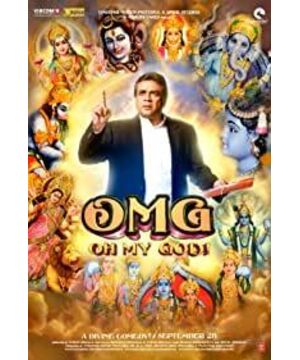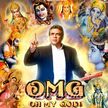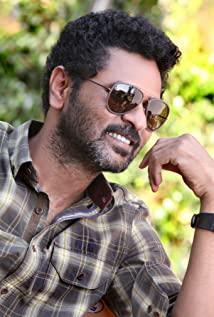Let’s take a look at these priests (several high priests in the film) who are supposed to be the most pious preachers of the law. Today, more than 2,000 years later, temples and clergy have really changed their religion into one of the most profitable businesses. Shaolin Temple wants to go public. The abbot has changed his name to CEO, and a piece of incense will cost several thousand yuan. From the Huakou Zhai meal in the Sakyamuni era, to the later monks who used the name of propagating the Dharma to ask for sponsorship to show their merits to the temple (seeking a name), and then the current monks turned the temple into a tool for collecting money (seeking profit), Qiao Li Mingmu asked the believers for all kinds of incense money. People go to the temple and do not get the positive influence of these clergy. They are not seeking more understanding of the true meaning of Buddhism, but to a Buddha who has given up all fame and fortune and desires, and asks for promotion, wealth, and birth of a son, and donates a few money in vain. Dealing with God is such a big disrespect to God. Quite a lot of so-called clergy today are as shown in this film. They are destroying the ways and means to confuse people to obtain righteous faith from the inside of this belief system, and this is the most direct and effective.
Let’s look at the believers again. Lao Tzu said: “The sergeant listens to the Tao, and he does it diligently; the sergeant hears the Tao, if he survives; the corporal laughs when he hears the Tao, and it is not the Tao not to laugh." The sergeant does not need to say. Ancient and modern. This sergeant is actually our vast number of believers. He has faith, but he can't deal with the entanglement of the world. He usually worships at home and worships incense in the temple if possible. When everyone believes, he also believes; when busy or the environment is not good for the practitioner, he let it go. Ordinary believers don’t put in more energy than full-time practitioners due to their ability to understand, and naturally they have relatively little understanding of the truth. Usually, they usually ask these clergymen who are closer to God for advice and learning. When clergymen deviate or even change When the goal of "Infernal Affairs" was to accumulate money, these ordinary believers naturally deviated from the right track due to the influence of the environment. From God’s point of view, these ordinary believers are the most innocent and the most pitiful. They are completely manipulated by bad clergy. They have a desire for true faith but are not able to rectify the Fa. They don’t care about the people around them who really need help, but spend a lot of money on those people. On the stone idol. God wanted to help these believers, wanted to cleanse his own clergy, wanted to give the corporal (the atheist Kanji) a chance, so God came.
God chose to solve all this from the atheist (Kanji). Kanji is a complete atheist. He only focuses on raising his family. It is an offshoot of the clergy’s money-gathering system. The reason why he doesn’t believe in God is because he has never read any book of God’s "Bible" and other books. . His unbelief stems from his ignorance, carelessness, and carelessness. He doesn't even know where his dislike came from, just blindly unbelief. When the lawsuit hit the most critical point, the incarnation god told him: He only read it carefully when there was evidence in the Bible that could help him win the lawsuit. When he finally grasped the evidence that could win the lawsuit from the work of God, he still did not believe in God. God gave him a lesson and showed him a divine trouble: religion. Kanji, who woke up from a serious illness, found himself an atheist who had been pushed to the altar. He had believers and clergy (originally his followers), and he also made a statue of a god. A condensed version of religion that believed in him was quickly born. . He never thought that he had become the most disdainful and objectionable person before, and he was angry. So far, God showed his true body and told him that God had never admitted religion, and that religion was created by man. Kanji, who had seen the miracle, finally understood that God is real, and what he has always hated and disliked is not God himself, but the believers who misrepresent God’s will and blindly obey, as well as those by the clergy. The religious system that controls and waits for opportunities to make money is the real reason that keeps him unwilling to believe in God. He smashed his own idol, disbanded his believers, and drove out the clergy who used him, and restored the world to peace and his innocence. At the same time, he also understands that God is everywhere, he has faith in his heart, and he doesn't need to be attached to anything (deity statues and objects used by God), just look in his heart.
India, the birthplace of Buddhism, one of the world’s three major religions, now has only 0.8% of its followers. Others believe in Hinduism, Islam, Christianity, and Sikhism. Religious issues have become decadent. Those who believe in religion do not know how to correctly believe in religion, and those who do not believe in religion do not know why they do not believe in it. Moreover, there are also some extremely greedy people who occupy important positions such as clergy, which will affect the faith of the entire country. Pushing into the bottomless abyss, the film looks like a comedy, but it is actually a tragedy. If this kind of balance and comedic approach were not used to express this acute and huge religious problem, the director and creative team would have been hacked to death on the street by religious extremists, ha ha. . .
View more about OMG: Oh My God! reviews











